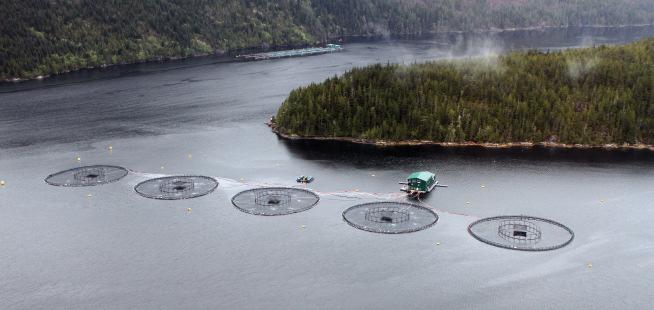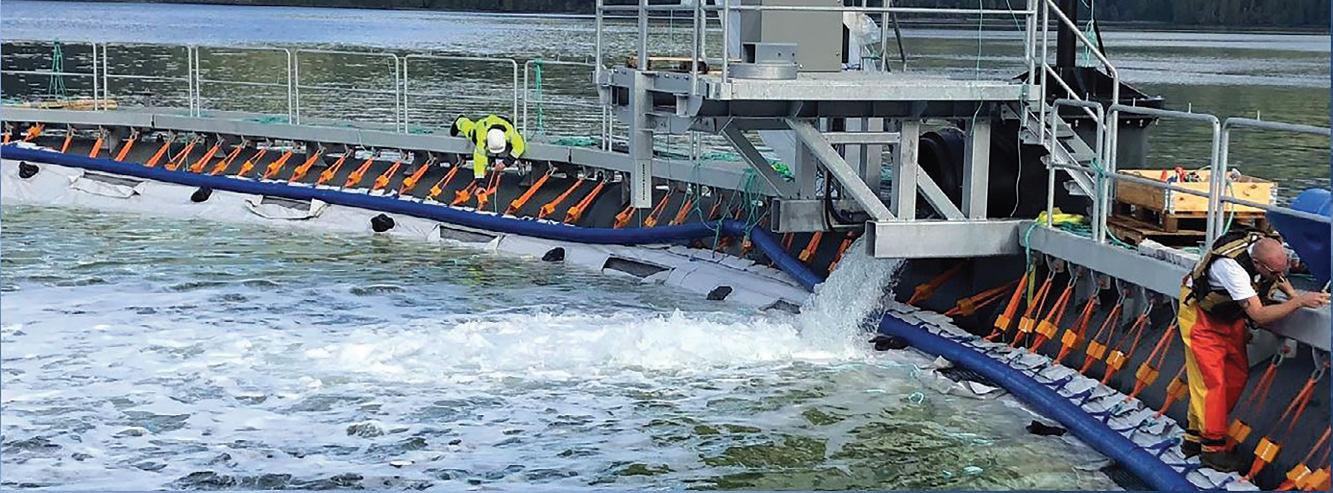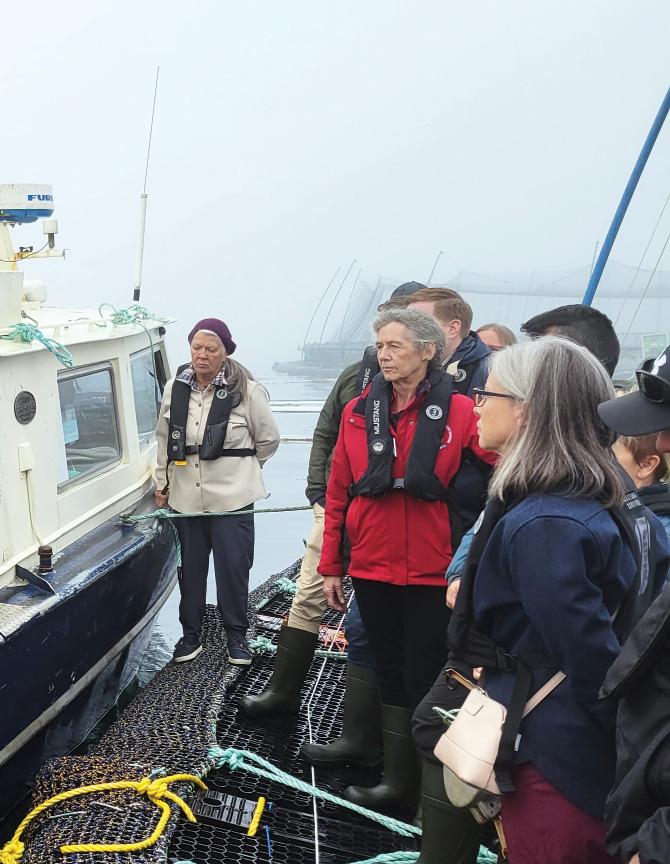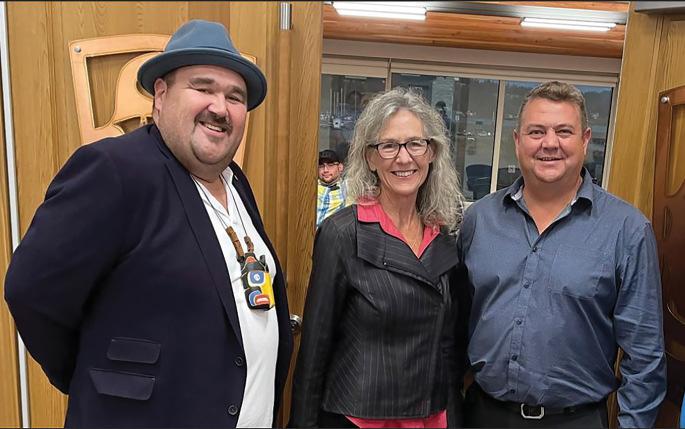
2 minute read
from wild stocks, as industry navigates through uncertainty
rights, West Coast economics and the future of Pacific salmon complicate the direction of the fish farming industry in B.C.
have formal agreements with fish farm operators, including theAhousaht, Ehattesaht/ Chinehkint and Tla-o-qui-aht First Nations in Nuu-chah-nulth territory. The Coalition of First Nations for Finfish Stewardship advocates for most of these nations, and is asserting their territorial rights as pressure on the aquaculture industry continues.
Advertisement
“We will choose if, when, and how the sector operates in our waters,” stated a Feb. 3 press release from the coalition.
[W]e would not put at risk thousands of years of stewardship nor the future of our peoples for short-term monetary gain,” continued the coalition’s statement. “For too long this conversation about this industry has been taking place between everybody except the nations impacted most. Activists, eco-colonialists, consultants, governments, and the companies have been at the table guiding the path and narrative of fish farming.”
Last summer salmon farms on the B.C. coast were granted two-year licence renewals, except sites in the Discovery Islands northeast of Vancouver Island.
Cermaq has three sites in the area which have been empty since early 2021, shortly after the federal department originally cancelled their licences.
“All fall under agreements with nations in the local area,” said Kiemele. “Two of the three sites have permission to be restocked.”
After more than seven months of uncertainty, on Feb. 17 DFO announced it would not be renewing licences for the Discovery Islands farms.
For the farms that continue to raise salmon on the B.C. coast, operators are expected to provide details on their transition plan by June. But as 2025 draws closer, the concept of removing net pens by that date is losing meaning, said Kiemele.

“Unfortunately, there’s still messages out there about all farms on land by 2025. That’s just simply not true,” he said. “It’s a long-term view that we’re taking here, not focusing on a date that, quite frankly, has sort of become obsolete.”
Submitted photos spreading deadly pollution,” wrote Lewis in a press ild salmon while the salmon with experimental Government must require the ocean – by 2025 last year the Union of passed a resolution urgaway from oceanhundreds of thoutransfers the sh waste surrounding comBCUIC resolution, to “salmon-related including heart and ammation (HSMI), and tenacibaculevels of parasitic migratory juvenile levels of predation herring stocks.” responsibility’ federal and provincial reports that miniand state that movfacilities is unviable. commissioned by the B.C. and Food examentirely moving concluding that aquaculture system (RAS) facilities would investment of $1.8 billion for by Counterpoint states that for land“Profitable production commercial scale
Fisheries Minister Joyce Murray on a Mowi Canada West salmon farm in their traditional waters on Oct. 14.

“Regulatory uncertainty, high capital cost, low returns on investment, and lack of incentives to locate in British Columbia remain the primary constraints challenging the development of RAS salmon farming in B.C.,” continues the report. “We have concluded from our research and analysis that RAS development in B.C. is possible, but at smaller scales and not in isolation from the larger aquaculture sector currently operating in B.C.”
Meanwhile, Fisheries and Oceans Canada published a report by the Canadian ScienceAdvisory Secretariat, which found “no statistically significant association” between sea lice on farmed salmon and what was found on wild Pacific stocks. The secretariat found that fish farms on the B.C. coast pose a “minimal risk” to Fraser River sockeye, a species of particular concern amid the continued decline of Pacific stocks. But the Union of B.C. Indian Chiefs has been skeptical of the DFO’s studies favouring the industry. Its resolution from last October pointed to evidence provided by the federal Standing Committee on Fisheries and Oceans “that outlined how DFO repeatedly ignored and misrepresented scientific evidence and overrepresents the interests of industry.”
The UBCIC stressed that First Nations “have a sacred responsibility to protect fish from the devastating impacts of open netpen aquaculture.”

Activists, ‘eco-colonialists’and governments
There are 17 First Nations in B.C. that

